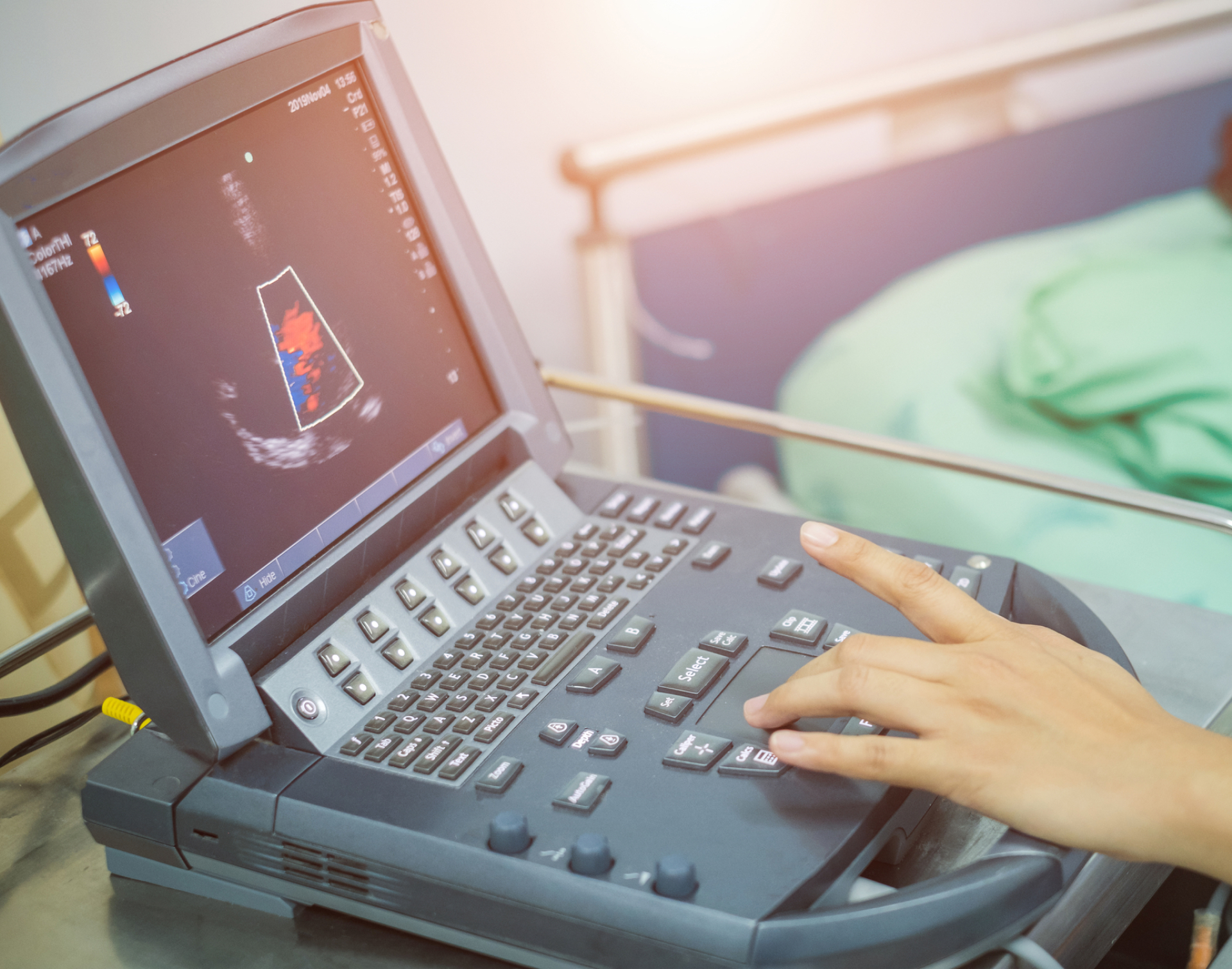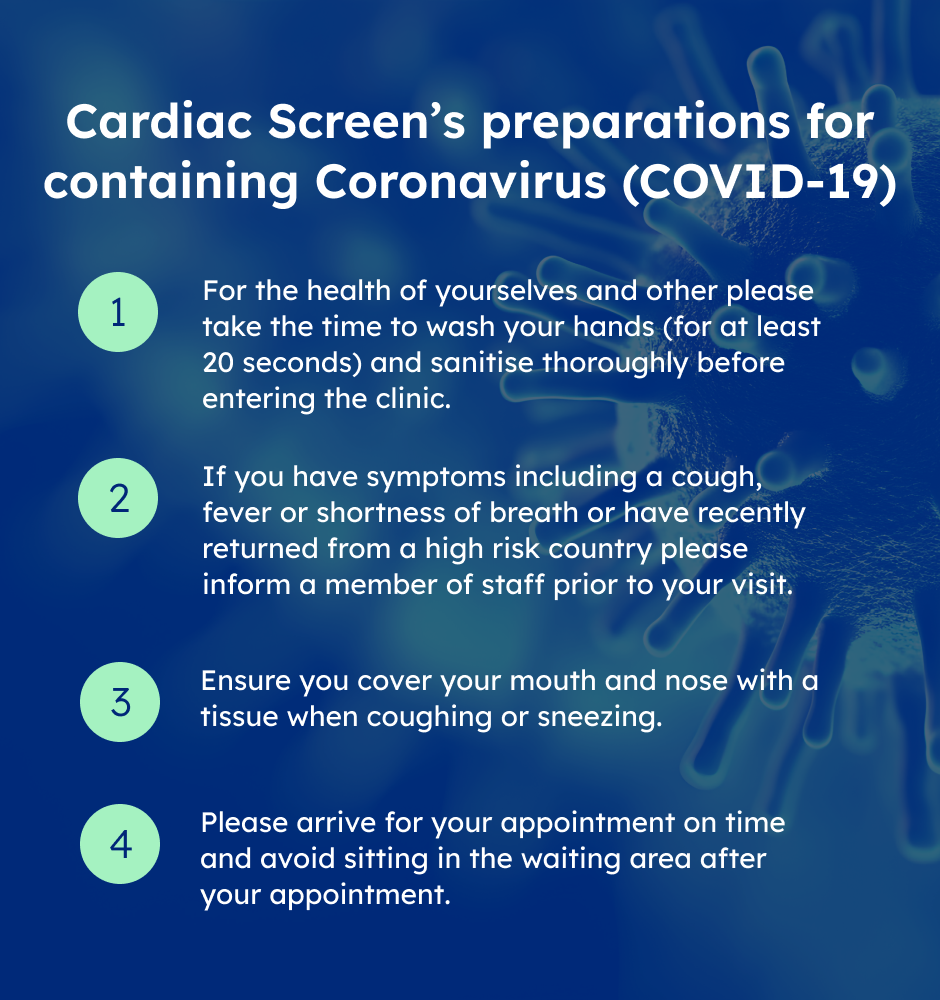Please click here to view Cardiac Screen's preparations for containing Corona Virus
Balppa House, 57-61 Newington Causeway, London SE1 6BD
Basic Screening 2
A consultation with a cardiologist
A consultation with a cardiologist
Resting Electrocardiogram (ECG)
When you have a resting ECG, you will be asked to lie down and relax for about five minutes. During this time, a series of electrodes, attached to your skin with small sticky pads, will be recording the electrical activity going on in your heart. The electrodes are just recording devices, which cannot send out any electrical impulses of their own, so you won’t feel a thing. The information they gather is transmitted back to the ECG machine, which will produce a chart or electrocardiogram showing how the electrical activity changes over time.
Cardiovascular risk profile
- Cholesterol: Measure the risk of cardiovascular disease, the lower the cholesterol value gets, the lower the risk of cardiovascular disease.
- HDL Cholesterol : Measures 'good cholesterol' that helps protect from heart disease.
- LDL Cholesterol: Measures 'bad cholesterol' that collects in the walls of blood vessels, causing the blockages of artery.
- Triglycerides: important to human life and are the main form of fat in the body and are used to provide energy to the body. High triglyceride levels have been linked to a greater chance for heart disease and diabetes.
General Chemistry blood Profile, which includes
- The Kidney /Renal Profile consist of: (Sodium, Potassium, Chloride, Urea, Creatinine, Bicarbonate and estimated GFR)
- The Liver function Profile consists of: (Alkaline Phosphate, Alanine Aminotransferase, Aspartate Aminotransferase, Total Protein, Bilirubin and Albumin)
- Fasting Blood Glucose (Sugar): for Diabetes
- C Reactive Protein (CRP): Blood test to identify inflammation or infection in the body.
Do you have a Question?
Pricing
From only £500.00
Basic Screening 2 Test is Available at a Special Reduced Rate!
Location
Basic Screening 2 is available at
The Medical Specialist
Balppa House
57-61 Newington Causeway
London
SE1 6BD
Appointments
Same Day Appointments
You can have quick access with same day appointments.
Self Referral
If you are self-referral, our staff would be happy to get a brief history of your symptoms and advise you appropriately with what you will require and which consultant you will need to be booked with.
Contact
Please contact us by clicking the button below, or speak directly to one of our dedicated Patient Care team directly on 020 7403 5294
Cardiac at Home Services
Our unique cardiac at home service means we come to you to perform this test in the comfort of your home.
Do You Qualify?Client Reviews

Price From only £500.00
Basic Screening 2
A consultation with a cardiologist








 BOOK NOW
BOOK NOW 






